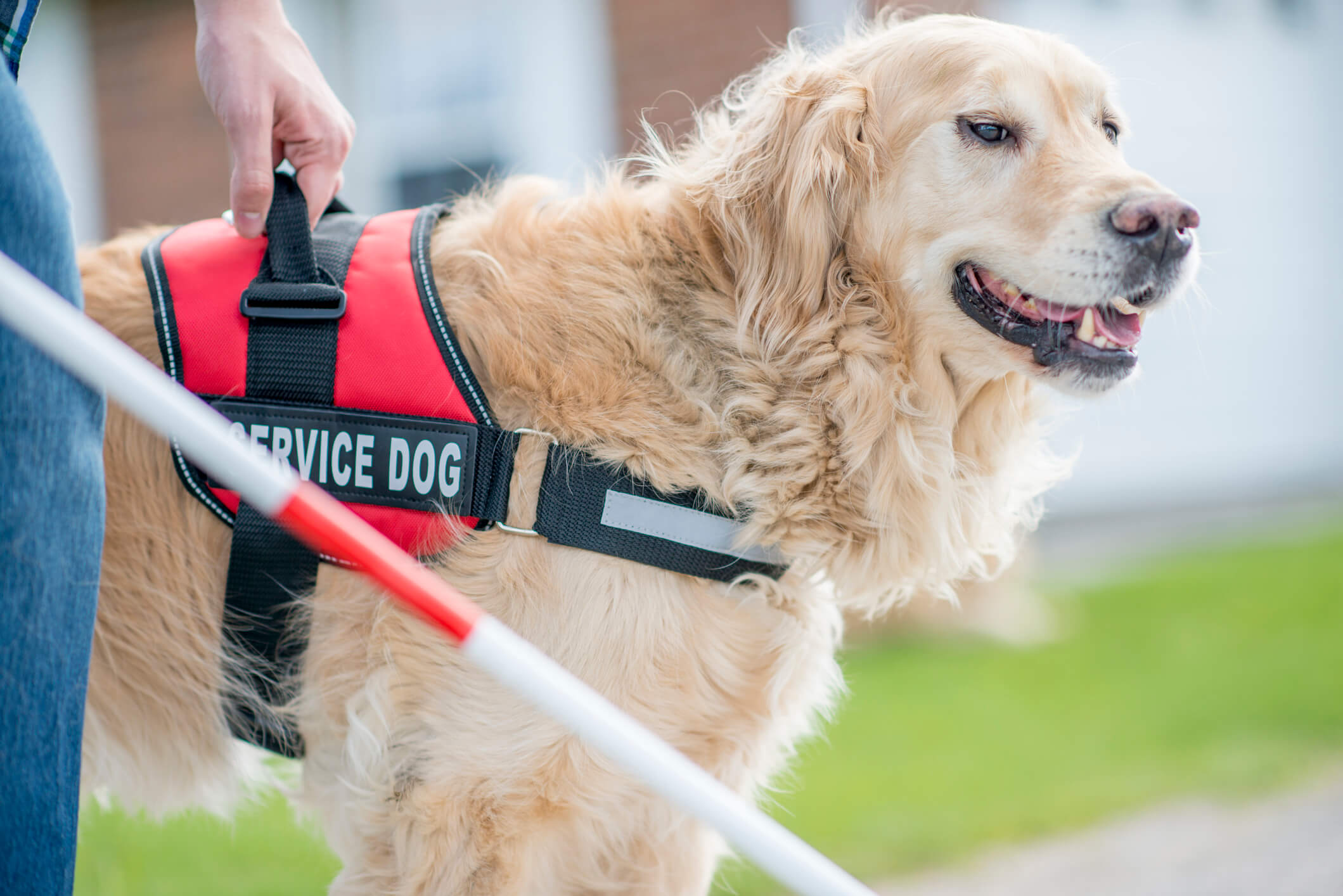
Let's Celebrate The Greatness of Guide Dogs!
Dogs make trusty companions. But for some people, a dog is much more than that. People who are visually impaired or blind rely on guide dogs just to go about their everyday lives. Guide dogs grant mobility, social opportunities and freedom to individuals who would otherwise be stuck at home. It’s no small task and one that deserves recognition!
On April 27, 2022, join millions around the world as they celebrate International Guide Dog Day. There’s no better time to learn about a guide dog’s incredible work! Discover why guide dogs are so amazing and how you can support their mission.
What is International Guide Dog Day?
Just as the name implies, International Guide Dog Day commemorates all the good work these pups do for blind and visually impaired individuals. The holiday was founded in 1989 by the International Guide Dog Federation, a group dedicated to matching people with well-trained guide dogs. International Guide Dog Day is always the last Wednesday of April.
This holiday is all about recognizing the huge impact guide dogs have. They’re a specific type of service animal that undergo rigorous training to help people with visual impairments navigate the world. Guide dogs are extremely intelligent and keep their handlers out of harm’s way. Trainers usually recruit breeds like Labradors, Golden Retrievers and German Shepherds.
The life-changing work of guide dogs
There’s no shortage of reasons to celebrate International Guide Dog Day. These pups deserve recognition for selflessly devoting themselves to people in need. Here’s how guide dogs make a positive impact on the visually impaired.
- They save lives: Guide dogs are constantly by their handler’s side to help them sidestep obstacles. They’re trained to prevent blind individuals from walking into harmful objects or oncoming traffic. A guide dog can assess their environment and adjust the handler’s path when necessary.
- They award freedom: With the help of guide dogs, blind individuals are free to travel wherever they want. Guide dogs increase a person’s mobility, which allows them to participate in more activities. They also boost the handler’s confidence by giving them autonomy over their own life.
- They encourage socialization: Guide dogs make it easier for the visually impaired to get out of the house and meet new people. Although you’re not supposed to pet a service dog, they make adorable conversation starters that can help two people form a connection. In the face of stigma around disabilities, dogs serve as a bridge to help people look past their differences.
- They help veterans: Many veterans became partially blind during service. When they return home, veterans receive much support from guide dogs as they relearn how to navigate civilian life with their new disability. Guide dogs also offer companionship as veterans work to overcome trauma from their time in service.

How to celebrate guide dogs
You don’t need to own a guide dog to celebrate this holiday! Anyone can support their line of work through donations, spreading awareness and more. Here are some ways to get involved.
- Admire from afar: Guide dogs have an important job to do. While these pups are adorable, resist the urge to pet, feed or talk directly to them. Doing so can pull a guide dog’s attention away from their handler. You might feel like you’re doing nothing, but staying out of the way is actually super helpful for guide dogs! Instead, use guide dogs in public as a learning opportunity. You can teach young children the importance of guide dogs and proper etiquette.
- Donate time or money: Training organizations can use all the help they can get. Look for reputable groups like Guide Dogs of America and the International Guide Dog Federation. They depend on donations to recruit, train and pair guide dogs with visually impaired individuals. It costs tens of thousands of dollars just to train one dog! Your donation might even help a low-income person get a guide dog of their own thanks to scholarships and grants.
- Adopt a retired pup: Not all dogs pass the rigorous service animal training courses. When this happens, these dogs become wonderful family pets. The breeds often used for guiding have a very mild temperament and play nicely with children. Other guide dogs will retire after spending their whole lives serving a handler. They’re often put up for adoption when the handler passes away or when age-related health problems hinder their guiding abilities.
The concept of a guide dog hasn’t been around for that long. And yet, these heroic pups have already assisted millions of lives. A guide dog drastically improves the quality of life for visually impaired individuals. Their services are so transformative, guide dogs deserve their very own holiday. Next time you see a guide dog, take a moment to appreciate all the life-saving work they do for people in need!


